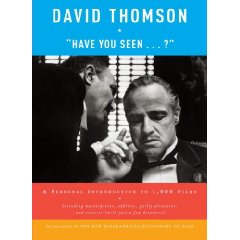 Mrs. T and I finally made it home to Connecticut on Monday, and I wish I could say that we’d been taking it easy ever since. No such luck: I’ve written a Wall Street Journal drama column, spent a grueling ten-hour day editing the manuscript of Rhythm Man: A Life of Louis Armstrong, and am now gearing up to knock out a Commentary essay on David Thomson’s new book, which will be published next month. Our recent travels to California, Maine, Massachusetts, New Hampshire, New Mexico, and Vermont barely seem real by now, though it’s not as though they never happened–I just can’t remember them very well, except for the steamed hot dogs we ate at Flo’s on Sunday and some of the shows we saw along the way.
Mrs. T and I finally made it home to Connecticut on Monday, and I wish I could say that we’d been taking it easy ever since. No such luck: I’ve written a Wall Street Journal drama column, spent a grueling ten-hour day editing the manuscript of Rhythm Man: A Life of Louis Armstrong, and am now gearing up to knock out a Commentary essay on David Thomson’s new book, which will be published next month. Our recent travels to California, Maine, Massachusetts, New Hampshire, New Mexico, and Vermont barely seem real by now, though it’s not as though they never happened–I just can’t remember them very well, except for the steamed hot dogs we ate at Flo’s on Sunday and some of the shows we saw along the way.
No doubt a few more nights’ sleep will help us both unwind a bit, though by then we’ll be packing our bags for yet another trip, this one to Wisconsin to see American Players Theatre and visit Taliesin, Frank Lloyd Wright’s country estate. We leave next Monday and get back next Thursday, and after that we’ll be off the road for three straight weeks.
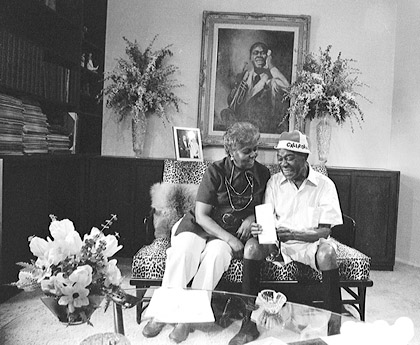 Looking back on the near-nonstop events of the past month, I realize that even for me, this has been coming it a bit high. As for my poor spouse, I suspect she’s feeling a bit like Lucille Armstrong, Louis’ fourth wife, who got the shock of her life when she married a working musician and discovered what it meant to go on the road.
Looking back on the near-nonstop events of the past month, I realize that even for me, this has been coming it a bit high. As for my poor spouse, I suspect she’s feeling a bit like Lucille Armstrong, Louis’ fourth wife, who got the shock of her life when she married a working musician and discovered what it meant to go on the road.
As I wrote in Rhythm Man:
Popular renown had brought few changes in Louis Armstrong’s daily life. He had always been a workhorse, and Joe Glaser, his manager, worked him harder than ever now that he was starting to make serious money. “Once we jumped from Bangor, Maine, to New Orleans for a one-nighter, then on to Houston, Texas, for the next night,” Pops Foster, the Armstrong band’s bassist, recalled in his autobiography.
Armstrong lived in the continuous present, playing pretty for the people, grabbing a bite to eat between shows, signing autographs after the last set, typing a stack of fan letters before bedtime, then starting from scratch the next day. After each dance he peeled off his sweat-soaked clothes and cleaned himself as best he could. “I mean, you see, places did not have them fine dressing rooms and showers and things then,” said Charlie Holmes, who spent five years in his saxophone section. “You just waited until everybody got out of the place, and then he could change his clothes after everybody had gone, and dry himself with his own towels and things.” The going wasn’t always that tough–sometimes the band traveled by private railroad car–but most of the time Armstrong’s men rode the bus, and he rode it with them. “He was a hard worker and a hard-workin’ man,” Holmes added, “and he didn’t ask you to do nothin’ that he wouldn’t do.”
Lucille had no inkling of what it would be like to live out of a suitcase. “My honeymoon was eight months of one-nighters and I thought I was going to give up the whole marriage,” she said later. “I’d never been away from home and I just couldn’t take it.” But she did what she could to make the anonymous hotel rooms in which they lived more inviting, and that Christmas Eve she bought a small tree, set it up in their room, and trimmed it, not knowing that her new husband, who had spent his childhood rummaging through garbage cans for food to sell, had never had a Christmas tree of his own.
He came back to the room that night and was stunned by the brightly colored lights. “We finally went to bed,” Lucille remembered. “And Louis was still laying up in the bed watching the tree, his eyes just like a baby’s eyes would watch something….So finally I asked him–I said, ‘Well, I’ll turn the lights out now on the tree.’ He said, ‘No, don’t turn them out. I have to just keep looking at it.'” They carted the tree from hotel to hotel until it dried up and had to be thrown out.
 Needless to say, it wasn’t quite like that for us. Last week, for instance, we spent two perfectly happy nights in the attic suite of the Benjamin Prescott Inn, a 150-year-old farmhouse that is one of our favorite New England homes-away-from-home. The neighborhood is peaceful, the breakfasts delicious, the innkeepers unobtrusively friendly, the nearby restaurants excellent. Not all of our lodgings were that agreeable, but none was less than satisfactory, and all the things we saw and did along the way were worth the time spent getting from point A to point Z.
Needless to say, it wasn’t quite like that for us. Last week, for instance, we spent two perfectly happy nights in the attic suite of the Benjamin Prescott Inn, a 150-year-old farmhouse that is one of our favorite New England homes-away-from-home. The neighborhood is peaceful, the breakfasts delicious, the innkeepers unobtrusively friendly, the nearby restaurants excellent. Not all of our lodgings were that agreeable, but none was less than satisfactory, and all the things we saw and did along the way were worth the time spent getting from point A to point Z.
Even so, enough is enough, and that’s what Mrs. T and I have had. Throughout the last few days of our trip, we longed to come back home to our farmhouse, watch old movies on TV, eat leftovers, look at the deer on the lawn, do the laundry, and sleep late. I haven’t had much luck with the latter, but all the other items on that homely agenda have been checked off at least once since Monday afternoon.
You will note, by the way, that blogging is nowhere to be found on the above list. I really do need a few days off, so I’m going to take them, unless I don’t. I can’t speak for my colleagues, but I chatted with Our Girl on the phone last night, so I know she’s alive, and CAAF is actually reported to have blown through New York while Mrs. T and I were on the road. Perhaps one or both of them will take up the slack, but if they don’t, there’ll always be a daily almanac quote!
Now, if you’ll excuse me, the next item on my schedule is a nap….

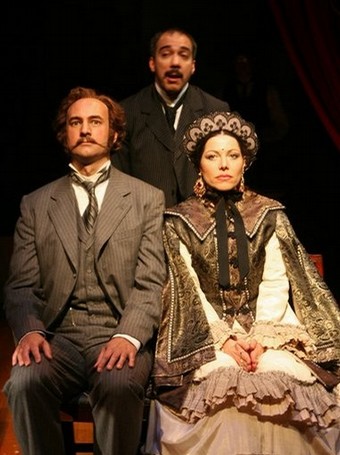 •
• 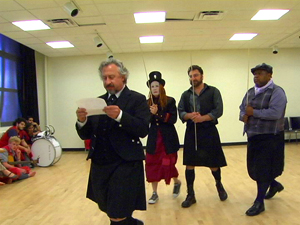 Mark your calendar: PBS will be telecasting the
Mark your calendar: PBS will be telecasting the 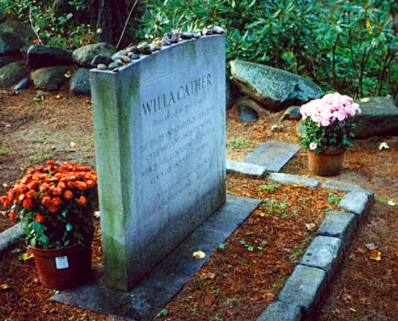
 A few hours after departing the Old Burying Ground, Mrs. T and I drove to nearby Peterborough to see the
A few hours after departing the Old Burying Ground, Mrs. T and I drove to nearby Peterborough to see the 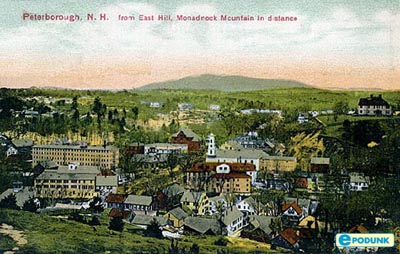 The next morning Mrs. T and I paid a visit to Peterborough’s East Hill Cemetery, an out-of-the-way spot that many well-informed locals believe to be the original of the unnamed cemetery in Our Town, though Wilder himself never admitted as much. So far as I could tell, no one has been buried there since 1932, but the Petersborough Historical Society continues to maintain the grounds and looks after the increasingly fragile headstones. East Hill is steep and there’s nowhere to park, so we left our rented car by the side of the road and started climbing. Within a minute or two we felt as though we’d stepped through a curtain into a lost world, one that Wilder’s Stage Manager describes with haunting precision:
The next morning Mrs. T and I paid a visit to Peterborough’s East Hill Cemetery, an out-of-the-way spot that many well-informed locals believe to be the original of the unnamed cemetery in Our Town, though Wilder himself never admitted as much. So far as I could tell, no one has been buried there since 1932, but the Petersborough Historical Society continues to maintain the grounds and looks after the increasingly fragile headstones. East Hill is steep and there’s nowhere to park, so we left our rented car by the side of the road and started climbing. Within a minute or two we felt as though we’d stepped through a curtain into a lost world, one that Wilder’s Stage Manager describes with haunting precision: